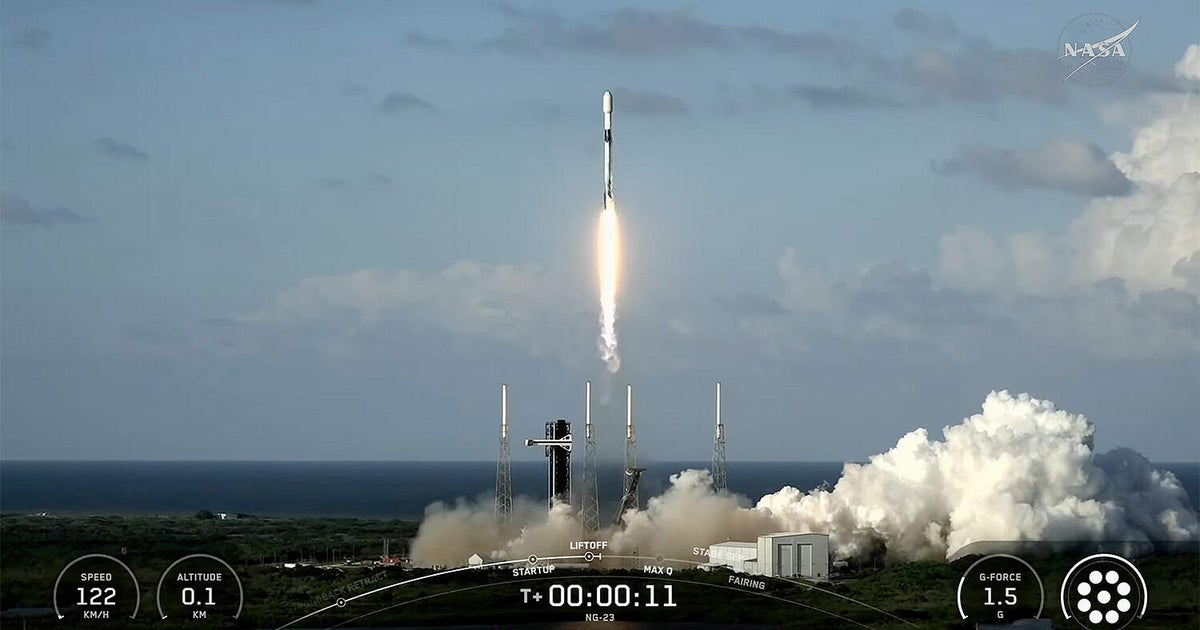A SpaceX Falcon 9 rocket successfully launched a significantly upgraded Northrop Grumman Cygnus XL cargo spacecraft on Sunday, September 14, 2025. This follows closely on the heels of a Russian Progress cargo ship arrival, further highlighting the ongoing international collaboration in space exploration. The uncrewed Cygnus XL is en route to the International Space Station (ISS), with a planned arrival and docking early Wednesday.

The Cygnus XL's payload is substantial, exceeding 5 tons and including critical spare parts, essential research materials, and crew supplies. Deputy manager of the space station program at the Johnson Space Center, Dina Contella, highlighted the inclusion of vital consumables such as nitrogen, oxygen, and even replacement parts for the station's urine processor. She emphasized the importance of replenishing these supplies after a year of shortages and establishing a robust reserve for the future.
Beyond necessities, the cargo includes a delightful array of food items for the ISS crew. Contella described these treats as 'specialties,' ranging from delectable seafood like clams, oysters, and crab to more traditional holiday fare such as roast turkey and smoked salmon. Sweet treats including candies, cookies, and ice cream also feature prominently on the manifest. A unique addition is a high school breakfast competition entry: a shakshuka scramble, a spicy egg dish popular throughout North Africa and the Middle East.
The Falcon 9 launch from Cape Canaveral Space Force Station's pad 40 was a spectacle in itself. The first stage engines ignited with a combined thrust of 1.7 million pounds, propelling the rocket into a northeasterly trajectory aligned with the ISS orbit. After stage separation, the first stage successfully executed a controlled descent and landed at the Space Force station, marking SpaceX's 67th Florida landing and 505th overall successful booster recovery. The second stage then deployed the Cygnus XL into its preliminary orbit, approximately 14.5 minutes after liftoff.
This mission marks the third of at least four SpaceX flights contracted by Northrop Grumman, as the latter develops its own new booster. The launch also signifies the debut of the Cygnus XL, an extended version of the spacecraft boasting an additional 1.6 meters (5 feet) in length and a 2,600-pound increase in cargo capacity. Contella lauded the partnership with Northrop Grumman and expressed enthusiasm for this significant capacity enhancement.
NASA's reliance on both SpaceX's Dragon and Northrop Grumman's Cygnus for cargo delivery is evident. SpaceX has successfully completed 32 Dragon resupply missions, while Northrop Grumman boasts 21 successful Cygnus launches. Both companies have experienced one in-flight failure each early in the commercial resupply program. This successful launch underscores the ongoing reliability and importance of these private-public partnerships in supporting the continued operation and research aboard the ISS.
---
Originally published at: https://www.cbsnews.com/news/spacex-launches-northrop-grumman-cargo-ship-to-international-space-station/
